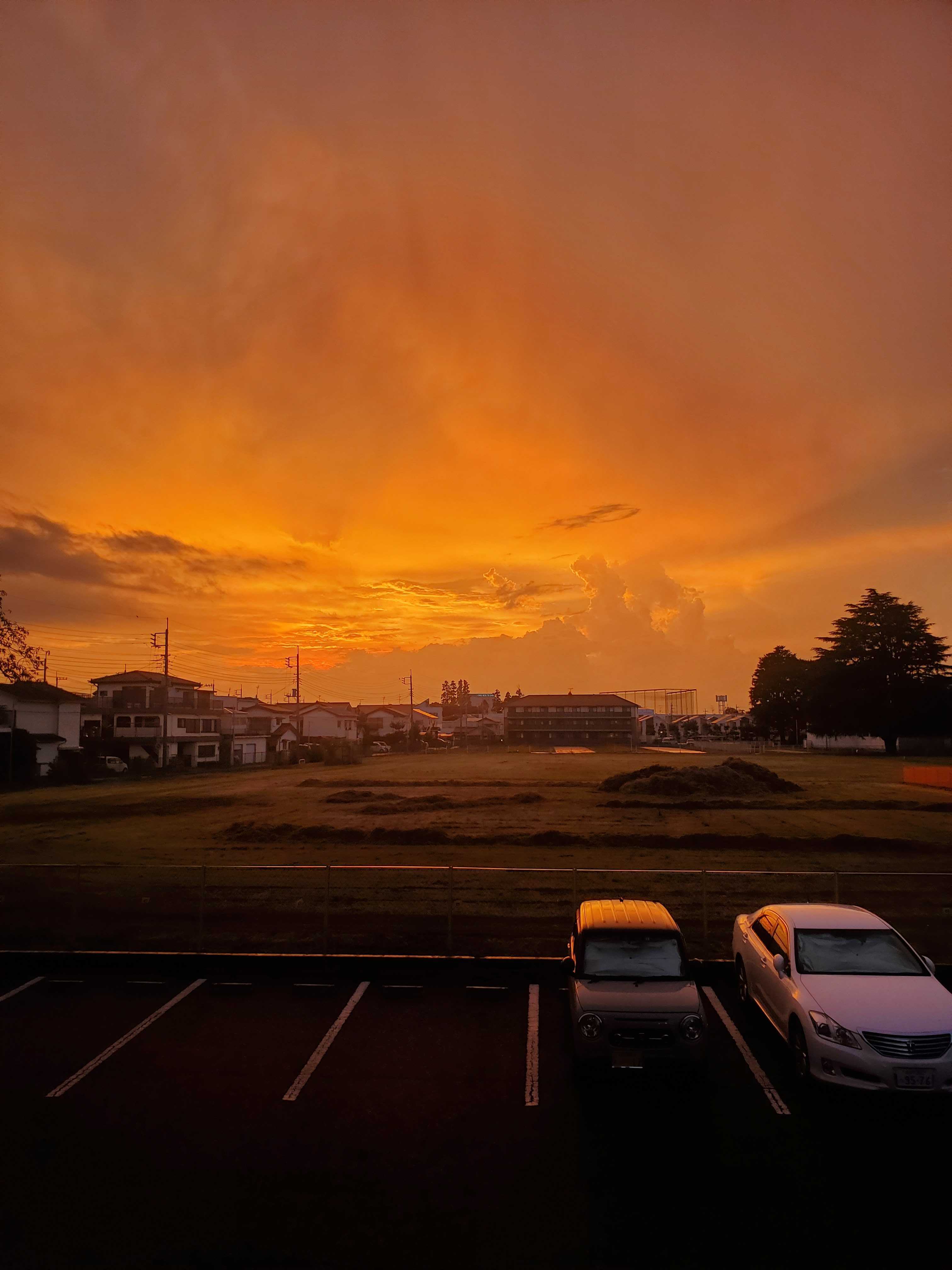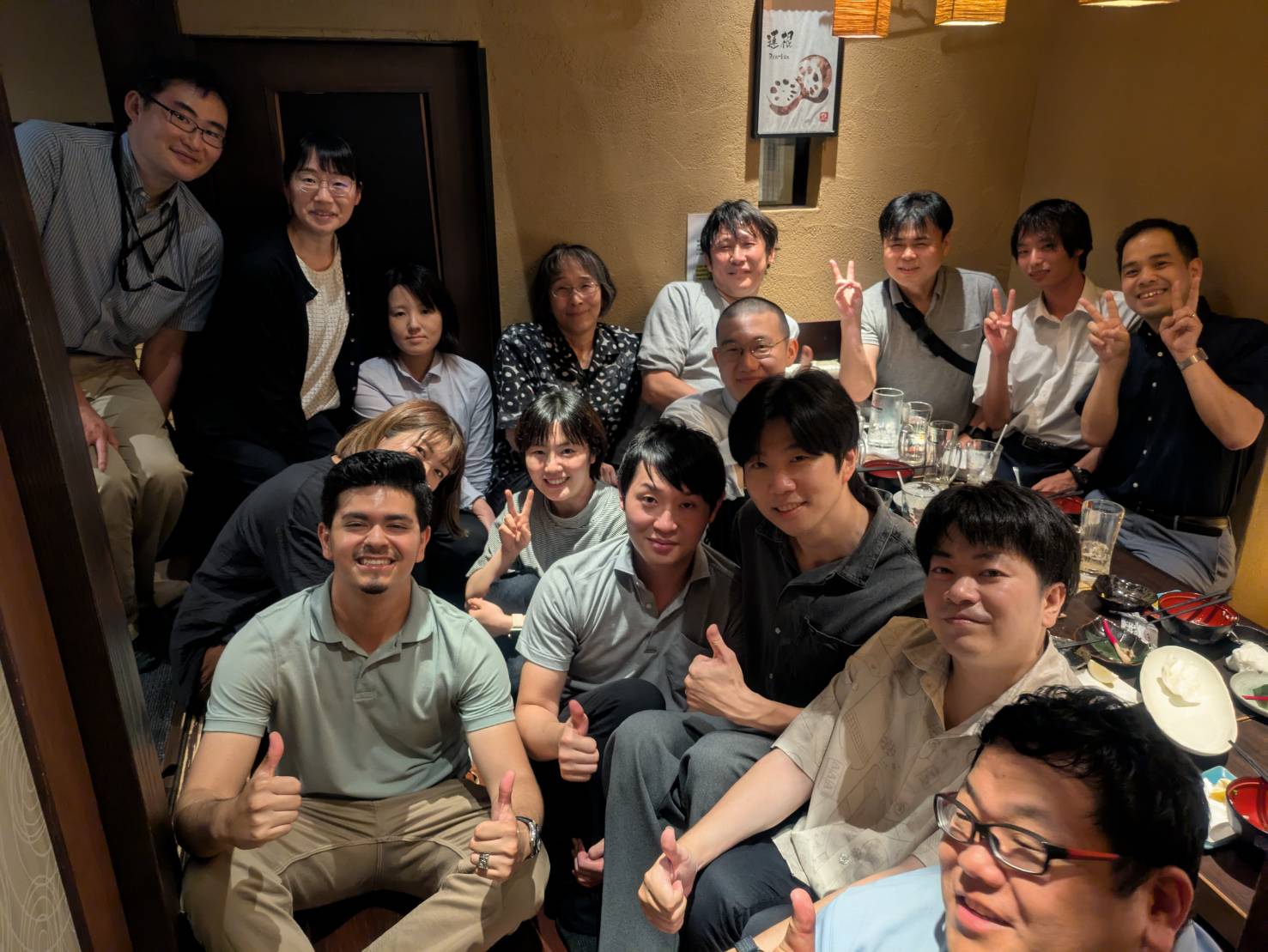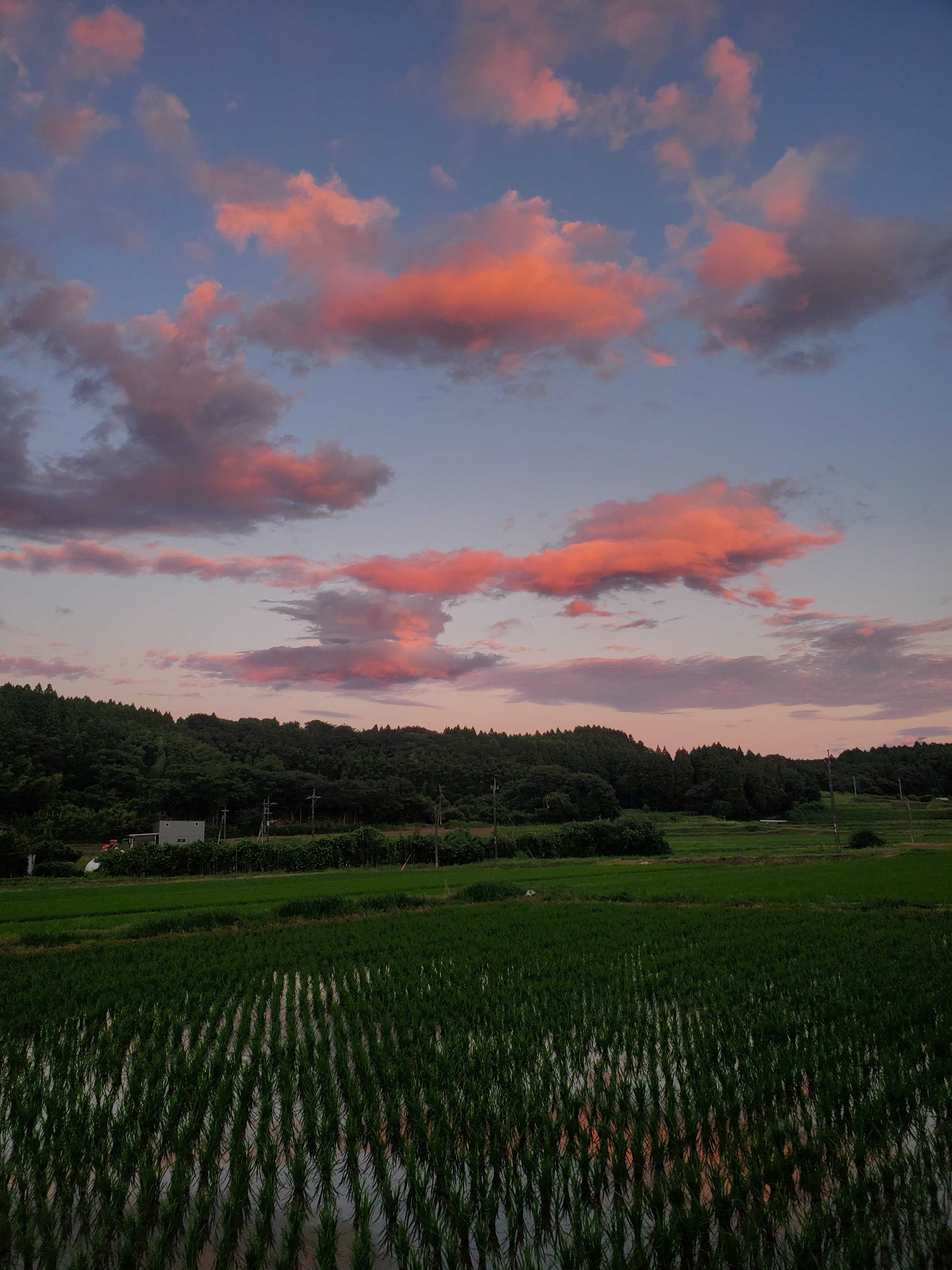- October 03, 2025
- Daniel Reyes '26
What is it about natural solitude that attracts some, yet strikes fear in others? For those bombarded by the hustle and bustle of city life, the serenity of the countryside can feel like a refuge. But for others, the silence and lack of constant interaction can be overwhelming. I grew up close to downtown Los Angeles, so I find myself seeking quiet places. These spaces give me an opportunity to think clearly, focus on my goals, and grow.

When I first laid eyes on the Japanese countryside, I saw an opportunity to ground myself. The sloping roofs of the houses, the green rice fields, the honest interactions between residents—these struck me deeply. My first glimpse came years ago in a Nova documentary on Japan’s engineering innovations and their relationship with the natural landscape. I knew then that I had to live there, at least temporarily, to see for myself. Once I entered MIT, I realized that my dream could become a reality through MISTI. And so began my preparation to work in Japan. Within four academic semesters, I gained enough Japanese to get by in a workplace setting. Even though I wasn’t top of my class, I was determined to communicate as effectively as possible. During this time, I also connected with Hitachi High Tech and landed an internship in their Metrology Solutions Department, working with Critical Dimension Scanning Electron Microscopes (CDSEM). My tasks involved coding scanning recipes and creating wafer structures for a more accurate pattern measurement. These new recipes and wafer structures would be needed for the newer (and more precise) microelectronic designs.
What stood out about Hitachi’s training was its balance: interns were given a detailed, step-by-step onboarding process, yet plenty of autonomy. It felt different from my past U.S. experiences, where the intern was more or less put on a second level. For example in Japan, when working with their in-house software, an engineer was there to guide me through the work. In the US, although an engineer did help train me, the training was very superficial and too short. Perhaps the engineers just had their hands full or I was just lucky to work in a very supportive group in Japan. Another interesting detail is that nanoengineering fabrication facilities are often in the countryside, where land is cheaper. That meant my work wouldn’t just connect me to cutting-edge technology—it would also place me in the rural landscapes I longed for.
I joined MISTI with a fantastic cohort, though the nearest students were over two hours away by train. After a long visa process, flight changes, and bouts of desperation with airline brokers, I finally arrived at Narita Airport late at night. Tokyo greeted me with neon yellows, blues, and reds glowing against the dark. My dopamine levels soared as I stayed two nights in the city, exploring Akihabara. Tokyo is vibrant and beautiful, but I knew then that I preferred visiting such bustling cities rather than living in them. Peace, for me, was elsewhere. I soon took the regional train to Hitachinaka in Ibaraki Prefecture, gazing out at sprawling rice fields and small towns along the way. Hitachinaka would become my home and workplace for two and a half months. It was a town of izakayas, shops, cafes, markets, and parks—a truly beautiful and quiet corner of Japan.
Japanese people tend to keep more to themselves, but once you start talking to them, you’ve made a new friend. In Nishinomiya, near Kobe, I wandered into a shop run by two elderly women selling warousoku (traditional candles). At first, they hesitated to speak, assuming I knew no Japanese. But once I introduced myself in Japanese, it was as if a candle was lit. They asked about my home country, my reasons for being in Japan, and how I learned Japanese. That interaction, though simple, remains one of my warmest memories. Daily life also brought cultural adjustments. Public trash cans are rare, and garbage must be meticulously sorted into burnable, non-burnable, glass, plastic, and paper, with disposal allowed only on certain days. At first, this was difficult, but after a week it became second nature. Such practices reflect a culture of shared responsibility, and I grew to respect them.
Japan is often idealized, and while there are aspects of daily life that flow smoother than in the US, the daily grind is unchanged. People still commute, study, and eat. The country, like any other, carries its share of problems. Japan is a largely homogeneous society, and foreigners can feel out of place, especially in rural areas. While I was warmly welcomed and felt safer than in Los Angeles, I also saw flashes of resentment. During my stay, the election season revealed this tension. Sanseito, a conservative party, was campaigning heavily in Japan and around many train stations. They often blamed foreigners for economic struggles and rising rice prices. Their rhetoric reflected a broader unease with outsiders. I experienced this anti-foreigner sentiment personally one night at a Don Quijote (Donki) store. Donki, by the way, is my favorite store in Japan simply because of the sheer variety of products and super reasonable prices. As I was packing my groceries one night, I noticed an older man glaring at me. He walked to me and he threw a few punches in my direction—none connecting, but close enough to startle me. When I asked in Japanese if he was okay, he asked me if I was a foreigner. After I answered yes, he swung again. At that moment, I had two choices: retaliate and risk jail or walk away. I chose a third. I gave him a respectful jikoshokai—a self-introduction common in work settings—sharing my name, student status, and presenting my business card. His demeanor softened immediately, and he mumbled something I couldn’t fully understand. I told him I had to leave and we parted ways peacefully. That moment taught me that respect, patience, and humanization can sometimes disarm anger more effectively than confrontation. Hopefully, it also gave him a different perspective on foreigners as well.

Of course, life wasn’t defined by such moments. Many of my experiences were joyful. After work, my team would invite me to a nomikai(group drinking party). These weren’t centered around alcohol; some didn’t drink alcohol at all. Instead they drank tea or soda and the experiences were mainly about community. I found these gatherings far more valuable and rare than similar events in the U.S. which deepened my connection to my colleagues., Through MISTI, I also joined outreach programs that brought STEM workshops to rural schools. In Kumamoto, I helped teach middle-school students engineering concepts through fun activities like egg-drop competitions. Watching their curiosity and joy reminded me of why I loved engineering in the first place. In a world increasingly driven by profit, returning to these roots—sparking wonder and problem-solving in young minds—felt revitalizing.
Looking back, most of my favorite memories came from rural Japan. City life in Tokyo or Kyoto dazzles with attractions, but the countryside offers something more lasting: peace and genuine human connection. Having grown up in major cities, I felt weary of interactions that lacked honesty. In smaller towns, the conversations I had—even brief ones—carried more sincerity. For anyone wondering whether rural Japan is right for them, I would pose three questions:
- Are you near a train station for commuting and traveling around the region? (This is invaluable and more common than you think because Japanese public transportation reigns supreme).
- Are you ready for your Japanese to be tested to the fullest extent (no need to be an expert)?
- Are you willing to trade city bustle for countryside calm, at least, during the workweek?

If so, I’d say go for it. My time in Hitachinaka, working with Hitachi and living among its people, was both technically enriching and personally transformative. It taught me that solitude does not equal isolation, and that true growth often blooms where the pace slows down and the world grows quiet.
About the author: Daniel Reyes, class of 2026 and majoring in mechanical and microelectronics engineering, interned at Hitachi, Ltd, over the summer of 2025 through the MISTI Japan program.
